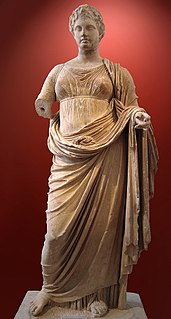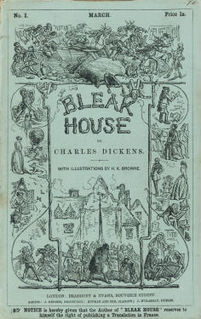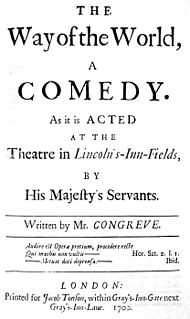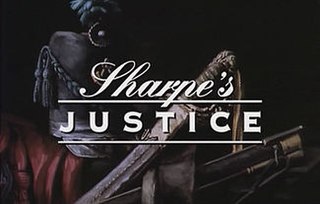
Themis is an ancient Greek Titaness. She is described as "[the Lady] of good counsel", and is the personification of divine order, fairness, law, natural law, and custom. Her symbols are the Scales of Justice, tools used to remain balanced and pragmatic. Themis means "divine law" rather than human ordinance, literally "that which is put in place", from the Greek verb títhēmi (τίθημι), meaning "to put".

Lady Caroline Lamb, known as the Honourable Caroline Ponsonby until her father succeeded to the earldom in 1793, was an Anglo-Irish aristocrat and novelist, best known for her work Glenarvon, a Gothic novel. She is also known for her affair with Lord Byron in 1812. Her husband was The Hon. William Lamb, who later became Viscount Melbourne and Prime Minister. However, she was never the Viscountess Melbourne because she died before Melbourne succeeded to the peerage.

Emma, Lady Hamilton was an English model and actress, who is best remembered as the mistress of Lord Nelson and as the muse of the portrait artist George Romney.

Bleak House is a novel by Charles Dickens, first published as a 20-episode serial between March 1852 and September 1853. The novel has many characters and several sub-plots, and is told partly by the novel's heroine, Esther Summerson, and partly by an omniscient narrator. At the centre of Bleak House is a long-running legal case in the Court of Chancery, Jarndyce and Jarndyce, which comes about because a testator has written several conflicting wills. In a preface to the 1853 first edition, Dickens claimed there were many actual precedents for his fictional case. One such was probably the Thellusson v Woodford case in which a will read in 1797 was contested and not determined until 1859. Though the legal profession criticised Dickens's satire as exaggerated, this novel helped support a judicial reform movement which culminated in the enactment of legal reform in the 1870s.

A Woman of No Importance is a play by Irish playwright Oscar Wilde. The play premièred on 19 April 1893 at London's Haymarket Theatre. Like Wilde's other society plays, it satirizes English upper-class society. It has been performed on stages in Europe and North America since his death in 1900.

Captain Brassbound's Conversion (1900) is a play by G. Bernard Shaw. It was published in Shaw's 1901 collection Three Plays for Puritans. The first American production of the play starred Ellen Terry in 1907. The play explores the relationship between the law, justice, revenge and forgiveness.

The Way of the World is a play written by the English playwright William Congreve. It premiered in early March 1700 in the theatre in Lincoln's Inn Fields in London. It is widely regarded as one of the best Restoration comedies and is still occasionally performed. Initially, however, the play struck many audience members as continuing the immorality of the previous decades, and was not well received.

The Puritan, or the Widow of Watling Street, also known as The Puritan Widow, is an anonymous Jacobean stage comedy, first published in 1607. It is often attributed to Thomas Middleton, but also belongs to the Shakespeare Apocrypha due to its title page attribution to "W.S.".

Darna Zaroori Hai is a 2006 Indian anthology horror thriller film produced by Satish Kaushik, and Ram Gopal Varma. The film is a sequel to Darna Mana Hai. It stars a host of Bollywood actors including Amitabh Bachchan, Anil Kapoor, Sunil Shetty, Riteish Deshmukh, Mallika Sherawat, Isha Koppikar, Arjun Rampal, Rajpal Yadav, Bipasha Basu, Randeep Hooda and more. The film was archived at the New York Institute of Technology, as part of the film course.
The Famous Flower of Serving-Men or The Lady turned Serving-Man is Child Ballad number 106 and a murder ballad. Child considered it as closely related to the ballad The Lament Of The Border Widow or The Border Widow's Lament.
Willie's Lady is Child ballad number 6 and Roud #220. The earliest known copy of the ballad is from a recitation transcribed in 1783.
The Bent Sae Brown is Child ballad 71.
No Wit, No Help Like a Woman's is a Jacobean tragicomic play by Thomas Middleton.

The City Madam is a Caroline era comedy written by Philip Massinger. It was licensed by Sir Henry Herbert, the Master of the Revels, on 25 May 1632 and was acted by the King's Men at the Blackfriars Theatre. It was printed in quarto in 1658 by the stationer Andrew Pennycuicke, who identified himself as "one of the Actors" in the play. A second edition followed in 1659. Pennycuicke dedicated the play to Ann, Countess of Oxford—or at least most of the surviving copies bear a dedication to her; but others are dedicated to any one of four other individuals.
The Night Walker, or The Little Thief is an early seventeenth-century stage play, a comedy written by John Fletcher and later revised by his younger contemporary James Shirley. It was first published in 1640.

Sharpe's Justice is a British television drama, the 13th of a series that follows the career of Richard Sharpe, a fictional British soldier during the Napoleonic Wars. Unlike most of the other installments of the series, this episode was not based on a novel by Bernard Cornwell. A key scene in the story is based on the Peterloo Massacre of 1819, reset here to Keighley in Yorkshire, in 1814.

Abhi is a 2003 Indian Kannada language romantic comedy film written and directed by Dinesh Babu. It stars Puneeth Rajkumar and Ramya, making her debut, in the lead roles. Veteran Kannada actor Rajkumar sang a soundtrack for the film composed by Gurukiran. The film was remade in Telugu as Abhimanyu starring Kalyan Ram and Ramya, who reprising her role.

Belle is a 2013 British period drama film directed by Amma Asante, written by Misan Sagay and produced by Damian Jones. It stars Gugu Mbatha-Raw, Tom Wilkinson, Miranda Richardson, Penelope Wilton, Sam Reid, Matthew Goode, Emily Watson, Sarah Gadon, Tom Felton and James Norton.

"The Other Shoe" is the third episode of the sixth season of the American fantasy drama series Once Upon a Time, which aired on October 9, 2016.













